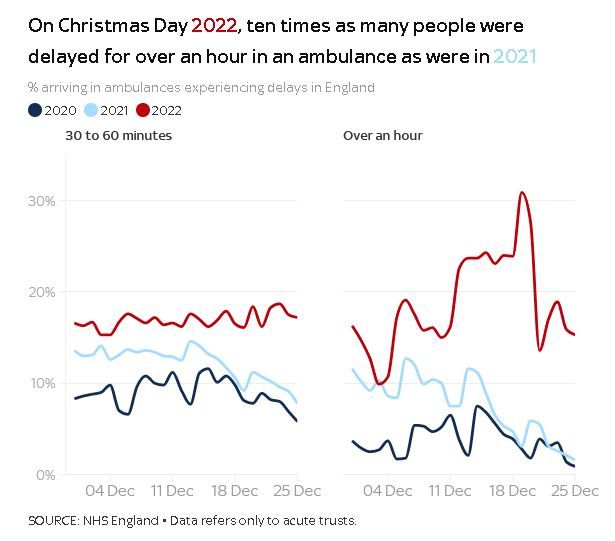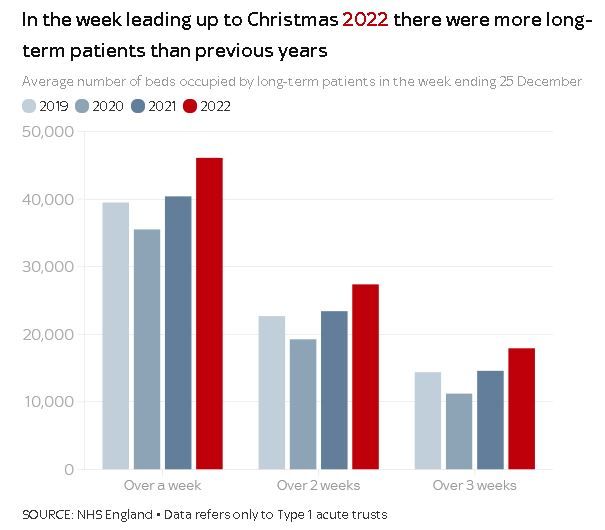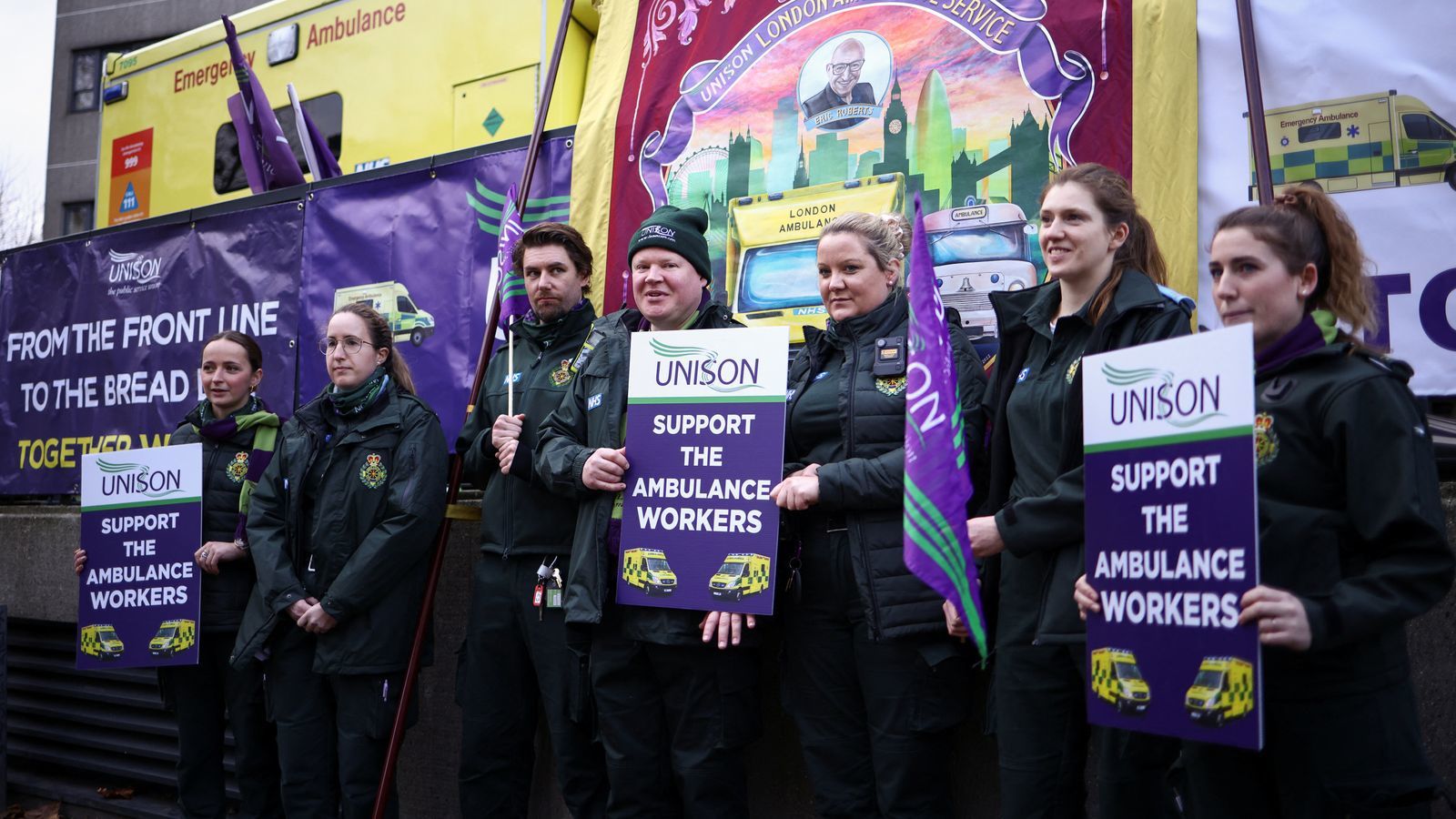Dr Tim Cooksley, president of the Society for Acute Medicine, says "urgent action" is needed to bring the health service back from the brink, while the head of the NHS Confederation warns senior medics are reporting the "toughest winter they've ever dealt with".
A senior NHS boss says most of the health service is under "unbearable strain" as pressure mounts on the government to take action.
Matthew Taylor, head of the NHS Confederation, told Sky News: "I speak to NHS leaders every day and a lot of them, if not most of them, say this is the toughest winter they've ever dealt with. We cannot go on like this."
The chief executive, who represents NHS trusts and healthcare leaders, added: "Most parts of the health service are under an unbearable strain and that does mean that we're not able to provide service as usual.
"We have to focus all our energies on the most urgent and intense needs, and that's why you're seeing the declaration of critical incidents in so many places."
It is understood seven health trusts have critical incidents in place.
The Liberal Democrats have called for parliament to be recalled over the mounting winter pressures.
The party is demanding the government pass an emergency health plan and declare a "national major incident".
A leading doctor has said pressure on the NHS is worse now than it was at the peak of the COVID-19 pandemic.
Dr Tim Cooksley, president of the Society for Acute Medicine, told Sky News that "urgent action" is required to bring the NHS back from the brink.
"There has never been a greater recognition amongst all staff that our current situation is worse than it has ever been," he said.
"And I know that people watching this will say, 'well every winter you have doctors on that say that this winter is terrible, that it's normal winter pressures'.
"But there is a complete acceptance from all colleagues now that this is different from all previous winters - and we need urgent action now."
He added: "This situation is much worse than we experienced under the COVID pandemic at its peak.
"And so we need to think carefully about how we can manage this and I think we need some urgent actions."
Which hospital trusts are dealing with critical incidents?
Sky News understands that at least seven hospital trusts are currently dealing with critical incidents, which means they cannot function as usual due to extraordinary pressure.
These critical incidents cover Derbyshire, Nottingham, North Wales, Dorset, Hampshire and the Isle of Wight, Staffordshire, and South West ambulance trust.
And at least 55 NHS trusts have publicly stated they are struggling to cope with the demand for their services.
Latest NHS England data shows that on Christmas Day more than one in seven people experienced delays of over an hour, which was almost 10 times higher than 2021 and 17 times higher than 2020.

The number of people in hospital for over a week was 14% higher than it was in 2021 and 30% higher than it was in 2020.

The president of the Royal College of Emergency Medicine, Dr Adrian Boyle, said on New Year's Day that between 300 and 500 people are dying each week because of delays in emergency care.
Those figures were questioned by others including NHS chief stratey officer Chris Hopson who said he did not "recognise" them.
Dr Boyle added that a severe flu outbreak, made worse by a lack of immunity in people due to COVID isolation measures, has meant that bed occupancy is at a record level.
Nurses also went on strike over a dispute about pay and conditions for two days in December as did paramedics, and the British Medical Association said it will ballot junior doctors this month.
 Ambulance workers hold signs as they take part in a strike
Ambulance workers hold signs as they take part in a strike
Government minister Robert Halfon acknowledged the pressures facing the health system but told BBC Radio 4's Today programme: "I'm absolutely clear that the prime minister treats this as a top priority.
"We're increasing the NHS capacity by the equivalent of 7,000 beds, spending an extra £500 million to speed up hospital discharge and improve capacity."
The education minister admitted that more needed to be done but defended the government's response.
"The government is putting a lot of funding and doing everything possible," he added.
"We know, of course, that many of these problems have been caused by the pandemic and the pressures on the NHS that we've seen over the past few years."
A Department of Health spokesperson said Health Secretary Steve Barclay is being kept up to date with developments.
Have you faced delays with urgent care? Tells us about your experience.















